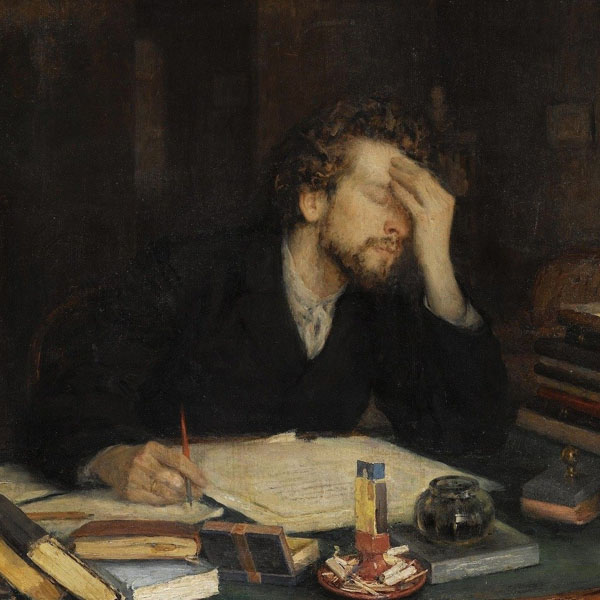From the earliest cave drawings to the e-books we read today, storytelling has been a fundamental part of how people relate to one another. Historically, individuals would gather and share stories about adventures, love, and life. This tradition of storytelling has a long history. But what compels someone to delve into the world of stories?
For many, the motivation comes when faced with the opportunity to write. Maybe the potential of a blank page or the idea of starting a new document sparks that urge. Have you ever considered the idea of writing and sharing your tales? Just think about the possibility of adding your voice to the vast sea of storytellers throughout history.
Consider J.K. Rowling, who was once an unknown dreamer, jotting down ideas of a young wizard on a delayed train. Or Mark Twain, inspired by the characters and scenes of the Mississippi River, bringing to life the tales of Tom Sawyer and Huckleberry Finn. Their beginnings were humble, driven by a simple yet powerful idea and a burning passion for sharing it.
1. Recognizing the Call to Adventure
In every great story, there’s a point where the main character decides to take on a challenge or explore something new. This decision or feeling to start a journey is crucial.
For writers, this feeling isn’t about big, dramatic events; it’s a personal experience. It can be the urge to write down a dream before forgetting it or the inspiration from a simple event, like seeing two people talk in a cafe. They feel that they need to share this story and that they are the only ones who can do it right.
All writers, whether they’re experienced or just starting, know this feeling. They want to share their view of the world, make regular events enjoyable, or create new and different worlds based on their ideas.
A perfect exemplification of this call is J.K. Rowling. Picture her on a delayed train from Manchester to London in the late ’90s. Instead of frustration or idle daydreaming, an idea struck her – a boy who discovers he’s a wizard. That spark, that initial call to adventure, led her to pen the world-renowned ‘Harry Potter series, captivating hearts worldwide.
For many, the call is subtle. For others, it’s a defining shout. But when it arrives, it’s unmistakable. Recognizing and honouring this call is the first step on the writer’s journey, a path filled with discovery, challenges, and unparalleled fulfilment.
2. Arming Yourself with the Right Tools
Preparing for a task requires the right tools and environment, much like writing.
First, consider where you’ll be writing. A dedicated workspace is beneficial for every writer. It doesn’t have to be an extravagant spot, but perhaps a quiet corner in your home with a desk and a comfortable chair. This location becomes your go-to spot for concentration, allowing your thoughts to be organized and your stories to take shape. In addition to a physical space, having a calm and focused mindset is crucial. This mental clarity helps in processing ideas and diving deep into your writing.
Moreover, think about the actual tools you’ll use. Notebooks can be handy for jotting down sudden ideas or planning out story arcs. A dependable computer is essential when you type out your narratives or share them with a broader audience. Don’t forget to choose writing software that suits your needs, whether it’s a straightforward word processor or something more specialized for character and plot development.
However, knowledge is one of the most invaluable tools in a writer’s arsenal. They say, ‘To write, you must read,’ and there’s profound truth in that. Delve into the classics, explore contemporary works, and immerse yourself in diverse genres. The broader your reading spectrum, the richer your writing palette becomes. Publishers today offer a vast array of works that can inspire and educate budding writers.
3. Commitment to the Craft: The Daily Practice
Using your imagination is essential. A writer needs to write regularly to make the most of their creativity. Writing is a skill that requires consistent effort. If you don’t practice, your ability can decline. But with regular practice, you improve.
Have you ever wondered how the greats do it? It’s not merely talent; it’s discipline. Take Stephen King, for instance. Behind the spine-tingling tales is a routine of writing 2,000 words a day, come rain or shine. That’s the equivalent of a dedicated gym-goer, showing up, lifting the weights, day in and out. It’s not about waiting for inspiration but showing up and doing the work.
But what if the sea seems calm, and ideas aren’t storming in? This is where writing prompts and challenges can be your guiding star. They act as sparks, igniting the flame of creativity even on the dullest days.
4. Facing the Dragons: Overcoming Doubts and Writer’s Block
Every writer faces challenges. These can be feelings of doubt, times when you can’t write, or when others don’t accept your work.
It’s common for all writers to experience these difficulties, whether they’re beginners or famous authors. For example, J.K. Rowling was rejected by many publishers before she became successful with Harry Potter. However, she never gave up and continued to believe in her work.
If you ever find it hard to write, taking a break, going outside, changing your surroundings, or just writing without any constraints might be helpful. Taking a different approach can help you get past these challenging moments.
Being rejected is also a common experience for writers. Agatha Christie, known for her mystery novels, was rejected many times before she became famous. But she kept going and is now recognized as a leading figure in her genre. Each time your work is turned down, it brings you one step closer to acceptance. Treat each rejection as a learning opportunity and part of the writing process.


5. Finding Your Tribe
Every adventurer needs a loyal band of friends — fellow travellers who understand the highs and lows, who share the laughter and bear the burdens. For writers, this tribe comes as a writing community or group. Imagine a band of fellow scribes who get your obsession with adjectives or your need to find the perfect metaphor for moonlight.
The perks? First, feedback. Fresh eyes that catch what you missed guide you toward a clearer, more compelling narrative. Second, support. On the gloomy days when doubts cloud your vision, it’s this tribe that fuels your fire, reminding you why you started. And lastly, camaraderie. You are celebrating each other’s successes and learning from setbacks.
And how to find these kindred spirits? Workshops, where the craft is dissected and discussed. Conferences, where stories of both struggles and success echo. Online platforms, where distance dissolves, and writers from around the globe unite.
And speaking of tribes, how can we forget the legendary literary camaraderie of C.S. Lewis and J.R.R. Tolkien? As part of ‘The Inklings,’ they exchanged ideas, critiqued each other’s works, and fueled their imaginations.
6. Editing and Refinement: Listening to the Village Elders
A writer must start with a primary draft and then refine it. There is no way around this process.
The first step is self-editing. Go back to your work and make changes. Remove unnecessary parts, smooth out the rough areas, and ensure every part of your work is important. It’s about adding and removing content to make sure your story is clear and impactful.
However, even if you check your work carefully, you might miss some mistakes or areas for improvement. That’s why it’s helpful to have others review your work. Beta readers can provide new insights and highlight areas you might have missed. Professional editors, with their experience, can further improve your work and make it the best it can be.
7. Sharing Your Tale with the World
Starting your writing journey is significant, but a story gains value when shared. Once you’ve refined your narrative, it’s essential to introduce it to a broad audience.
Several avenues can lead to your work being published. The traditional method includes finding and convincing agents who can introduce your work to well-known publishing houses. Taking this approach can be time-consuming but can result in your work being distributed widely and backed by a group of experts.
Another option is self-publishing, a method where you take the reins. Modern digital platforms enable writers to reach their audience directly. This method offers more creative control and potential earnings but requires you to be proactive in marketing and promoting your work.
A third option is a hybrid model, combining traditional publishing for some works while self-publishing others.
Using SignalHire, a tool for locating contacts on LinkedIn, can be beneficial for young writers. It can help them find emails and phone numbers, such as those in publishing houses like Macmillan, and present their work to the right people.
However, facing rejection is a reality in the world of publishing. Not every agent or publisher will recognize the worth of your manuscript. Kathryn Stockett’s ‘The Help’ is a classic example – facing rejection 60 times before its value was finally recognized. It’s essential to persevere and believe in your work.
Conclusion
The road to becoming a writer is paved with dreams, ink, and undying passion. It’s a path where words become your compass, guiding you through valleys of doubt and mountains of success. As you journey, remember this: every twist, every turn, and every pause is a chapter in your writer’s tale.
The stories you pen, the characters you breathe life into, and the worlds you create are reflections of your dedication and growth. But more than the accolades or the published books on a shelf, it’s the journey that genuinely shapes you.
Embrace the writer’s journey with an open heart, for every story, including yours, matters profoundly. And as you write, let your words tell tales and weave the tapestry of your epic saga.
















